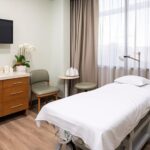
How TCM Acupuncture in Singapore Supports Holistic Recovery
In recent years, more individuals are turning to TCM acupuncture in Singapore as a form of complementary therapy. Within the broader practice of TCM in Singapore, acupuncture plays a unique role. It focuses on stimulating the body’s energy flow, or qi, through targeted points on the body. This approach seeks not only to ease symptoms but to help the body restore balance and regain its natural rhythm.
1. It Begins with an Individual-Centred Approach
Before any needle is placed, a licensed practitioner conducts a detailed consultation. This process is a hallmark of TCM in Singapore and includes evaluating lifestyle habits, stress levels, sleep patterns, and even digestion. The goal is to develop a profile that explains not just where discomfort exists, but why it may be happening. TCM acupuncture in Singapore uses this information to map out a targeted treatment plan focused on the patient’s overall condition, not just their current complaint.
2. Acupuncture Helps Restore Internal Balance
Many people seek acupuncture in Singapore for issues like chronic pain, headaches, fatigue, or tension. But unlike symptom-based interventions, acupuncture sessions work by improving the flow of qi and blood in specific meridians. The practitioner uses fine, sterile needles to activate these energy channels, which are believed to support circulation, reduce inflammation, and recalibrate bodily systems. Over time, this approach can foster a more stable internal environment, which helps reduce the frequency or intensity of recurring issues.
3. It Can Complement Western Treatments
One of the benefits of seeking TCM acupuncture in Singapore is how well it integrates with conventional care. Patients recovering from surgery or managing long-term health concerns often turn to acupuncture to reduce side effects, manage stress, and feel more grounded during recovery. The practice does not interfere with medical treatments, and many healthcare providers acknowledge its value in reducing tension, improving sleep, and supporting the body’s capacity to heal.
4. Sessions Are Designed to Be Gentle and Restorative
Despite its reputation, acupuncture is not a painful experience. The needles used in acupuncture in Singapore are very fine and typically cause minimal to no discomfort. In fact, many patients report feeling a sense of calm or lightness during treatment. Sessions usually last between 30 to 60 minutes, and the environment is typically quiet and soothing. This setting reinforces the belief within TCM in Singapore that healing requires the nervous system to be in a state of rest, not distress.
5. It Supports Emotional and Mental Wellbeing
The effects of TCM acupuncture in Singapore extend beyond physical complaints. By rebalancing the body’s internal systems, acupuncture has been associated with improved emotional regulation and mental clarity. Some patients report a reduction in anxiety symptoms, better sleep quality, or an improved sense of focus after consistent sessions. In a fast-paced environment like Singapore, this holistic layer of care offers valuable support for maintaining overall wellness.
6. It Encourages Long-Term Health Awareness
Because TCM in Singapore approaches health from a preventive angle, patients are often encouraged to become more aware of their habits and bodily signals. Acupuncture becomes part of a wider effort to improve diet, movement, and emotional wellbeing. The sessions serve as checkpoints where patients reflect on their daily routines and how they affect health outcomes. Over time, this routine can lead to better lifestyle choices, resulting in fewer flare-ups or stress-related issues.
7. Treatments Are Tailored to Changing Needs
Health is rarely static, and acupuncture protocols are adjusted accordingly. Whether you are dealing with a new concern or seeking ongoing maintenance, practitioners in TCM acupuncture in Singapore continuously tailor the treatment to reflect current needs. This flexible, evolving approach is what makes acupuncture not just a one-time intervention, but a sustainable option for those seeking holistic recovery.
Conclusion
TCM acupuncture in Singapore offers more than a method for managing pain. It represents a commitment to long-term wellness through balance, care, and an understanding of the whole person. Each session aims to support recovery not just physically, but emotionally and mentally as well.
To learn more or explore your options, contact Oriental Remedies Group.





